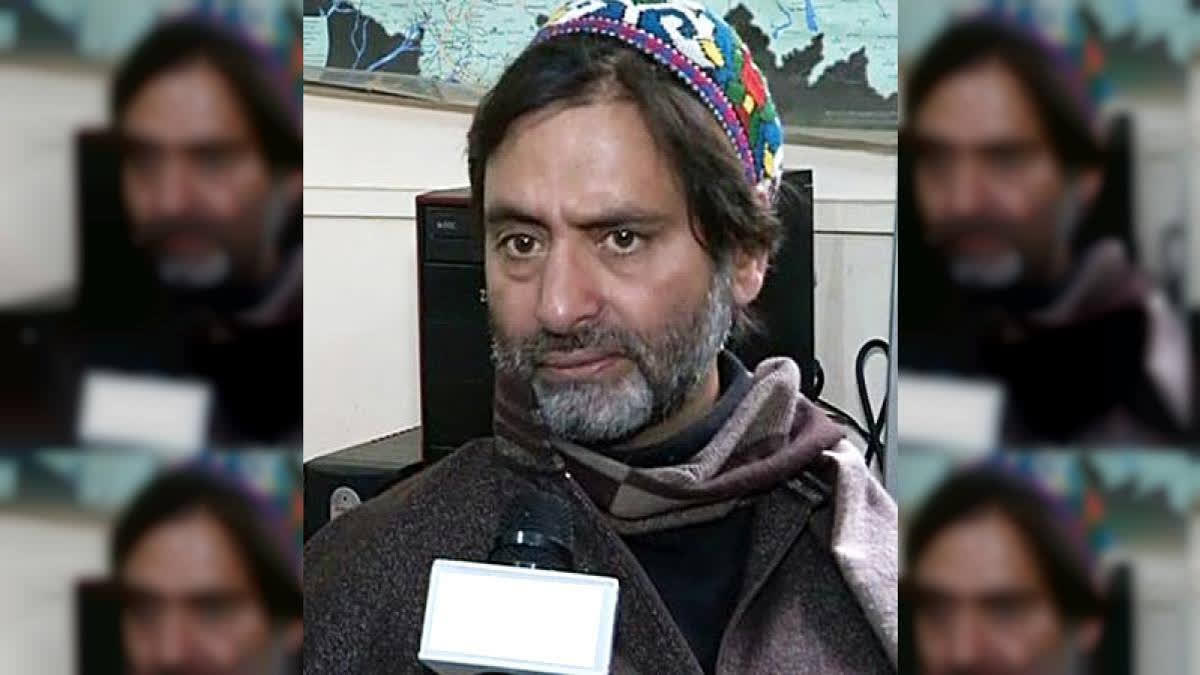Srinagar (Jammu and Kashmir): Delhi High Court Judge Amit Sharma on Thursday recused himself from hearing the National Investigation Agency's (NIA) plea seeking the death penalty for separatist leader Yasin Malik in a terror funding case.
The case was listed before a division bench headed by Justice Prathiba M. Singh due to a change in the roster of judges handling such matters. "List before another bench, of which Justice Sharma is not a member, on August 9," Justice Singh said.
Yasin Malik, the Jammu and Kashmir Liberation Front (JKLF) chief currently serving a life sentence, appeared virtually from Tihar Jail for the proceedings. The court directed that he would continue to appear virtually for the next hearing as well.
On May 29, 2023, the high court issued a notice to Malik on the NIA's plea seeking the death penalty and requested his presence for the next hearing. Jail authorities subsequently filed an application for his virtual appearance, citing him as a "very high-risk prisoner" and emphasizing the importance of maintaining public order and safety by avoiding his physical presence in court. This request was granted by the high court.
Previously, on May 24, 2022, a trial court sentenced Malik to life imprisonment after finding him guilty of offenses under the stringent Unlawful Activities (Prevention) Act (UAPA) and the Indian Penal Code (IPC). Malik had pleaded guilty to the charges, including those under the UAPA, and was subsequently convicted and sentenced to life imprisonment.
The NIA has appealed against the life sentence, arguing that a militant cannot receive only a life term simply because they pleaded guilty and chose to avoid a trial. The agency contends that failing to impose the death penalty in such cases would undermine the sentencing policy, allowing terrorists a way to escape capital punishment.
The NIA asserts that a life sentence is insufficient given the severity of the crimes committed, which resulted in the loss of lives of soldiers and civilians. The agency also argues that the trial court's decision not to classify Malik's crimes as the "rarest of the rare cases" deserving of the death penalty is legally flawed and unsustainable.
The trial court, in rejecting the NIA’s plea for the death penalty, noted that Malik's crimes struck at the "heart of the idea of India" and were intended to forcefully secede Jammu and Kashmir from the Union of India. However, it concluded that the case did not warrant the death penalty, as it did not meet the "rarest of rare" threshold.



